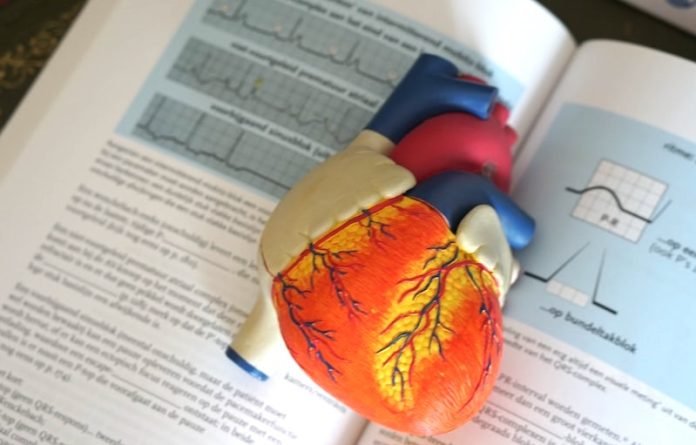
In a study from the Hannover Medical School and elsewhere, scientists found how inflammation in COVID-19 can change the smallest vessels in the heart.
Severe COVID-19 infection not only impairs lung function but can also cause life-threatening consequences for the heart.
About one in three people complain of discomfort and functional impairment of the heart after severe COVID-19 disease.
The of heart problem spectrum ranges from acute inflammation of the heart muscle (myocarditis) to chronic restriction of the heart’s pumping function.
But the basic patterns of damage have not yet been completely proven.
In the study, the team used innovative molecular methods and a high-resolution microscopy technique to show how the ongoing inflammation in COVID-19 attacks the heart tissue.
They examined heart tissue from patients with severe COVID-19 and compared it with tissue samples taken after severe influenza infections caused by the flu virus and after severe heart inflammation caused by other viruses.
They also found in the long term, COVID inflammation remodels the smallest coronary vessels by directing special precursor cells of the immune system from the blood into the heart.
They found in the COVID-19 heart injury, there was no classic inflammation of the heart tissue on the outside.
But they did find a large accumulation of false-activated inflammatory cells: so-called macrophages and their precursor cells, the monocytes.
Triggered by the infection with the coronavirus SARS-CoV-2, tiny blockages accumulate in the heart vessels, which are only a few millimeters thick.
These ultra-thrombi change the blood flow considerably and thus also the oxygen supply. This calls the monocytes into action, which attach themselves to the inner vessel walls and form new branches there.
This vascular remodeling—known as intussusceptive angiogenesis—has already been described by the team as a characteristic pattern of damage in other organs of COVID-19 patients.
What may be intended as a short-term rescue response by the body to compensate for reduced blood flow and undersupply of oxygen could lead to chronic damage to the heart and long COVID.
If you care about heart health, please read studies about how eating eggs can help reduce heart disease risk, and Vitamin K2 could help reduce heart disease risk.
For more information about COVID, please see recent studies that mouthwashes may suppress the COVID-19 virus, and results showing zinc could help reduce COVID-19 infection risk.
The study was conducted by Dr. Danny Jonigk et al and published in the journal Angiogenesis.
Copyright © 2023 Knowridge Science Report. All rights reserved.



